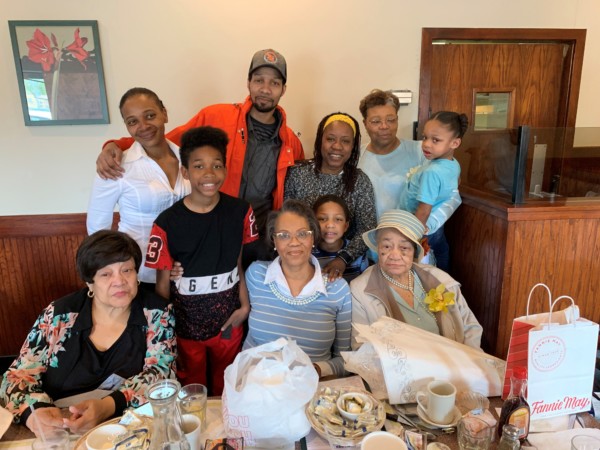by Nicole NeSmith, Development & Communications Associate at CARPLS
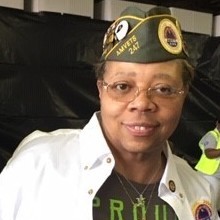
The CARPLS IN-DEPTH SERIES will explore dedicated people within the Chicago-area legal aid community. This inaugural post takes a look at someone who lives her life in service to others. She is a woman with a vision to better the lives of female veterans, senior citizens, and people in need of mental health services.
Joye Williams is a force to be reckoned with—though she cringes at any grandiose description of herself.
A Waukegan resident, Joye works as an ombudsman in the Public Benefits Practice Group of the Legal Assistance Foundation (LAF), where she protects the rights of residents in assisted living and long-term residential care facilities. She loves helping others and always knew she would be an advocate and community leader.
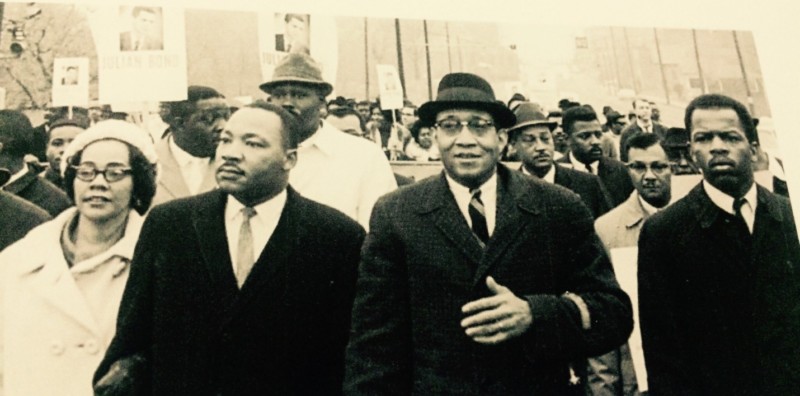
Her passion for public service stems from a long family tradition of serving others. Joye’s uncle, Rev. Dr. Samuel Woodrow Williams, marched with Martin Luther King, Jr. and was his professor of religion and philosophy at Morehouse College.
“The Bible tells us that ‘to whom much is given much is required.’ [My family] actively live that creed as educators, doctors, lawyers, social workers, nurses, and everyday laborers, and are all active in church and social and civic organizations, including labor unions, fraternal organizations, etc.,” said Joye.
Her family adopted the “it takes a village” mentality early on, with friends, neighbors and family working together to support Joye and three younger siblings through their childhood.
Joye knew her father and where he worked, but she was raised in a single-parent home by her mother, Wilverlyn M. Williams, who worked for the U.S. Postal Service in Chicago in various capacities throughout her childhood. Wilverlyn raised Joye with a sense of empowerment from an early age, while also shielding her from some uncomfortable realities. “We never knew we were poor,” Joye admits.
Ultimately, Joye describes her childhood as “great,” having come of age in the late 60s/early 70s in Englewood, on Chicago’s Southside. Though this period in U.S. history was a time of great political and societal unrest, she recalls feeling comfortable among her peers. “Chicago was and is a very segregated city. Where I grew up, the people around me looked like me. And even if I saw someone that didn’t look like me, I just thought they were the same.”
In early high school, Joye was granted admission to a pilot program called Permissive Transfer, which allowed students from the Southside of Chicago to attend schools on the Northside. It wasn’t until this move that Joye had a “rude awakening”: the color of her skin meant she would be treated differently. Though Joye was an honors class student at her old school on the Southside, at Mather High School she was placed in remedial classes.
In 1972, she moved to Arkadelphia, Arkansas where she completed high school and became the senior class president. “My family was always very education oriented. They believe you do better when you know better on all levels,” Joye said. “It was the beginning of my personal journey for social justice.”
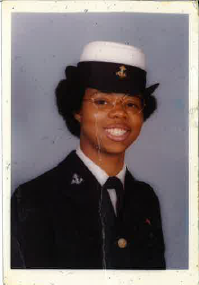
After trying out college “for a minute,” Joye enlisted in the Navy in 1974 on a whim while living in Chicago. She remained enlisted for one year and describes the experience as simply “different.” Joye experienced Military Sexual Trauma (MST) during her time in service, but it took her several decades to confront it and to seek any assistance.
“I was hospitalized for two years at one point at the [U.S. Department of Veteran Affairs (VA) hospital], and I watched a fellow veteran [who I met in the hospital], who was a dear friend of mine, lose his life kind of needlessly due to incompetence and malpractice. I made a vow that on my watch that wouldn’t happen to another veteran.”
In September 2018, Joye was granted disability benefits through the VA. “Now, I am in control of my life,” Joye noted. “[It was difficult to] come forward with my experience in the military. I have met so many people, especially female veterans, with similar stories. It is a daunting task to help someone move forward and decide to apply for benefits.”
Joye has also put the goal of serving others into action through education. After obtaining an associate’s degree and certificate in paralegal studies from the College of Lake County (CLC), Joye enrolled in the master’s degree program in legal studies at the University of Illinois in Springfield (UIS). In the summer of 2018, at the age of 64, she graduated, with her scholarship donor, Rose Marie Roach, and her 92-year-old mother, by her side.
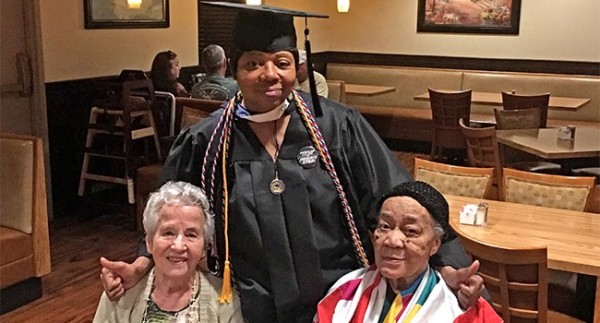
It felt like a full circle moment for Joye. “When I went to school, every paper I wrote, every class I took, was aimed at advocating or lobbying for society’s most vulnerable people—especially for female veterans, those who are disabled, mentally ill, and seniors,” Joye said.
Joye didn’t stop there. Within six months after graduating, she established two scholarships. One is the LAW Scholarship at the College of Lake County, which is named after her three youngest grandchildren: Legend Arman, Legacy Arsean, and Loyal Andre Williams (each grandchild has the initials LAW).
To be eligible for the scholarship, the applicant must be an African American male from a low-income, impoverished community in Chicago or a neighboring suburb. Joye noted that the population of African American males is missing in classrooms—in the seats and at the desks in higher education.
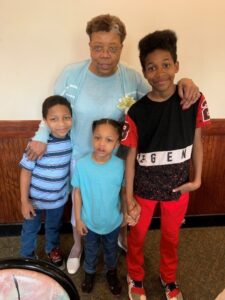
Joye also created the Lawrence E. Williams / Dr. Larry Golden Illinois Innocence Project Scholarship Fund at the University of Illinois Springfield, where she earned her master’s.
The scholarship is for individuals who were victims of a wrongful conviction, who have a felony, and who want to reintegrate into society by furthering their education, and/or who work with the Illinois Innocence Project.
“I went to school on scholarships, so starting one was important to me,” Joye said. “Then I spoke to someone at the UIS foundation, and a friend of mine, Dr. Golden, who found the Innocence Project at UIS to get started. I named it after my son. He was struggling and still is struggling. Unfortunately, African American males get treated a little differently in our criminal justice system. From birth to well into adulthood.”
Joye noted that her scholarships are also motivators for having better conversations surrounding public policy.
“If we don’t have the right conversations, things don’t change or they don’t have the same effect,” Joye said. “I wrote my [master’s thesis] on how language for those in power control conversations. With Colin Kaepernick, for example, that conversation started as police brutality. Then, some people in power flipped the script and made the conversation about patriotism and spoiled black athletes. [In less media-driven situations], disadvantaged people are not able to easily rise against controlled conversations, so we need people to enter the conversation that have the education and the right motivation to use their sphere of influence and power to change things.”
In addition to her scholarships, she is focused full time on advocating for senior citizens and female veterans via the many organizations she works for in various capacities.
“Female veterans have been in the military since the revolutionary war, but they get a bad rap. I mean, just being a woman in general is difficult,” Joye said. “Then add in being in the military, which is a male-dominated organization, and we’re at risk of losing our femininity and/or our identity. I just want to empower women and female veterans no matter what.”
Joye and another female veteran are in the beginning stages of a plan to build a female veterans resource center, where veterans could not only find out about resources but also have many of them provided on site. Also, Joye would be wasting her abundant energy if she didn’t think about running for office, though the exact position is currently a well-kept secret. For now, she is happy with her very full plate, which includes everything from chairing boards to paperwork to conversations with people from all walks of life.
When Joye got up to say goodbye at the conclusion of our interview, after shaking my hand, she swiftly turned and said with a huge smile, “Ok, back to work.”
Joye Williams is part of LAF Chicago, the National Association of Letter Carriers, The Improved Benevolent Protective Order of Elks of the World (IBPOEW), AMVETS, the New Philadelphia Church Baptist in Chicago, Tenth Democrats, and formerly on the Board of Directors for Growing Healthy Veterans.
